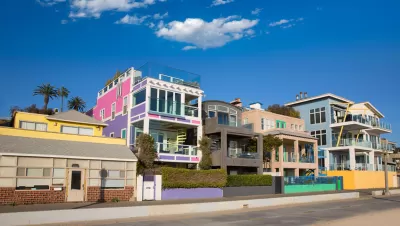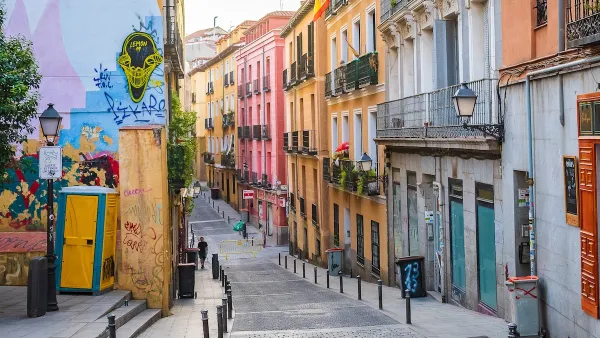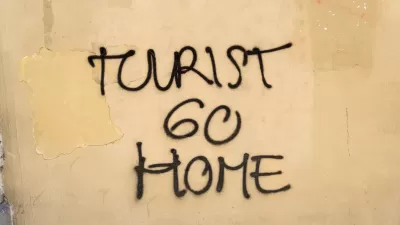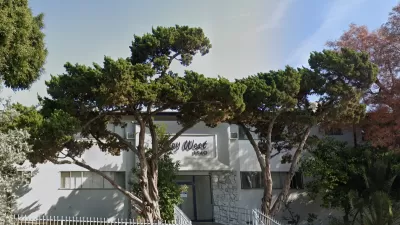By exiling short-term renters, the coastal city of Santa Monica shifts its housing burden onto neighboring areas. That burden, according to this op-ed, contradicts the city's sustainability commitment and further limits scarce residential options.

Santa Monica occupies prime real estate in coastal West Los Angeles (though it is an independent city), and attracts a sizable tourist crowd. Recently, the city chose to ban short-term rentals of less than 30 days when the owner is absent. "Residents complain that tourists make poor neighbors, hotels resent the competition for guests, and affordable housing advocates say Airbnb drives rents up by removing housing from the long-term rental market."
Paavo Monkkonen and Nate Holmes criticize the decision, writing that the ban "will simply push perceived negatives to other cities and neighborhoods in the region. After all, Santa Monica has not eliminated its own attractiveness as a destination for tourists."
Furthermore, the ban contradicts Santa Monica's environmental commitment: "consider how many people will be adding to congestion on the 10 and the 405 to get to Santa Monica instead of walking or bicycling from a local Airbnb."
Santa Monica's reluctance to allow Airbnb, Monkkonen and Holmes argue, reflects the popular city's wider unwillingness to welcome new residential development.
FULL STORY: Santa Monica’s problematic ban on short-term rentals

Planetizen Federal Action Tracker
A weekly monitor of how Trump’s orders and actions are impacting planners and planning in America.

Maui's Vacation Rental Debate Turns Ugly
Verbal attacks, misinformation campaigns and fistfights plague a high-stakes debate to convert thousands of vacation rentals into long-term housing.

Restaurant Patios Were a Pandemic Win — Why Were They so Hard to Keep?
Social distancing requirements and changes in travel patterns prompted cities to pilot new uses for street and sidewalk space. Then it got complicated.

In California Battle of Housing vs. Environment, Housing Just Won
A new state law significantly limits the power of CEQA, an environmental review law that served as a powerful tool for blocking new development.

Boulder Eliminates Parking Minimums Citywide
Officials estimate the cost of building a single underground parking space at up to $100,000.

Orange County, Florida Adopts Largest US “Sprawl Repair” Code
The ‘Orange Code’ seeks to rectify decades of sprawl-inducing, car-oriented development.
Urban Design for Planners 1: Software Tools
This six-course series explores essential urban design concepts using open source software and equips planners with the tools they need to participate fully in the urban design process.
Planning for Universal Design
Learn the tools for implementing Universal Design in planning regulations.
Heyer Gruel & Associates PA
JM Goldson LLC
Custer County Colorado
City of Camden Redevelopment Agency
City of Astoria
Transportation Research & Education Center (TREC) at Portland State University
Jefferson Parish Government
Camden Redevelopment Agency
City of Claremont





























